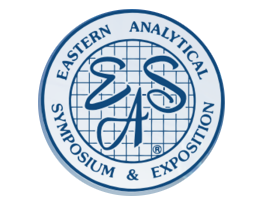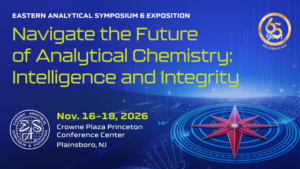Two-Day Course
Sunday, Nov. 16 & Monday, Nov. 17; 8:30am – 5:00pm
Dr. Perry G. Wang, LC-MS Technical Expert, Burtonsville, MD
COURSE DESCRIPTION
This course offers practical training for the practical scientists. It will take the participants step‐by‐step through the concepts and techniques to develop LC‐MS methods. The emphasis is on practical issues associated with developing LC‐MS methods for small molecules. It also emphasizes problem‐solving skills with examples encountered in the pharmaceutical industry and other fields. This course will provide the participants with an updated overview and a solid working knowledge of LC‐MS. The participants will learn useful theoretical concepts, instrumental fundamentals and operating principles, column basics and selection guides, and key applications. After this course, the participants will be able to independently develop their own LC‐MS methods. New technologies and techniques, such as monolithic chromatography and hydrophilic interaction liquid chromatography (HILIC) will be presented.
Since some of the participants are from the pharmaceutical industry, which is regulated by GLP and GMP, some regulation and validation concepts will be introduced.
WHO SHOULD ATTEND
This two-day course is intended for analytical chemists, supervisors, lab managers, and researchers using LC-MS. It will benefit the scientists ranging from college graduates to professionals in the analytical field.
TOPICS
1. Introduction and Overview
a. History of chromatography
b. Introduction of high-performance liquid chromatography
c. Introduction of mass spectrometry
2. Key Concepts
a. Retention time (tR)
b. Retention factor (k’)
c. Separation factor (α)
d. Column efficiency (N)
e. Chromatographic resolution (R)
f. pKa/pKb of analytes
g. van Deemter Equation
h. Fundamentals of mass spectrometry
i. Atmospheric pressure ionization (API) in mass spectrometry
j. Common ionization modes: ESI, APCI and APPI
k. Mass analyzers: quadrupole, time of flight, ion trap and orbitrap
l. Mass resolution and mass accuracy
m. Matrix effects
3. What you can Learn from the Course
a. What kind of columns should be selected?
b. How column physical and chemical property affects the resolution
c. How pH affects the separation
d. How to transfer HPLC methods to UHPLC/UPLC methods
e. Which mode should be selected – isocratic or gradient
f. How to select the best solvents for LC-MS
g. How to optimize a gradient profile
h. Separation mechanism: reversed-phase or HILIC or normal-phase
i. Mobile phase selection and organic modifiers
j. How pKa/pKb affect separation
k. How to eliminate and compensate matrix effects of MS
l. Validation consideration
4. Operating Parameters and Column Selection
a. Flow rate and gradient time
b. Column temperature (T) & packed columns (support type, dimensions, particle & pore size)
c. Monolithic and HILIC columns
5. Mass Spectrometer (MS)
a. Fundamental – charged species, mass resolution and mass accuracy
b. What kind of ionization should be selected – ESI, APPI or APCI
c. Single and Triple quadrupole, TOF, Ion trap and Q-exactive
d. How to develop an MS and MS-MS methods
e. How to perform a qualitative and quantitative analysis
6. Method Development Approaches
a. Finding or estimating pKa or pKb of the analytes
b. Defining method type (reversed phase or normal phase or HILIC)
c. Estimating buffer pH
d. Scouting gradient to get the first chromatogram
e. Fine-tuning and optimizing the method – solvent type and strength
7. Method Validation
a. Accuracy
b. Precision
c. Linearity
d. Weighting factors
8. Sample Preparation and Introduction of High-Throughput Analysis
a. Protein precipitation
b. Liquid-liquid extraction
c. Solid phase extraction
d. Turbo-Flow technique
9. Special Topics
a. Monolithic chromatography
b. Hydrophilic interaction liquid chromatography
c. Core-shell technology

Dr. Perry G. Wang has been a chemist at US FDA since 2008. Prior to joining the FDA, he worked in the pharmaceutical and medical‐device industry. He received his Ph.D. from Oregon State University. He specializes in LC‐MS method development and validation for drugs, cosmetics, foods, and dietary supplements. He has been invited to teach this course at PittCon since 2006, at HPLC since 2012, at Eastern Analytical Symposium since 2014, at ASMS in 2022 and at ACS in 2009 and 2010. He teaches these courses in his own capacity as a scientist, but not as an employee of the FDA.

